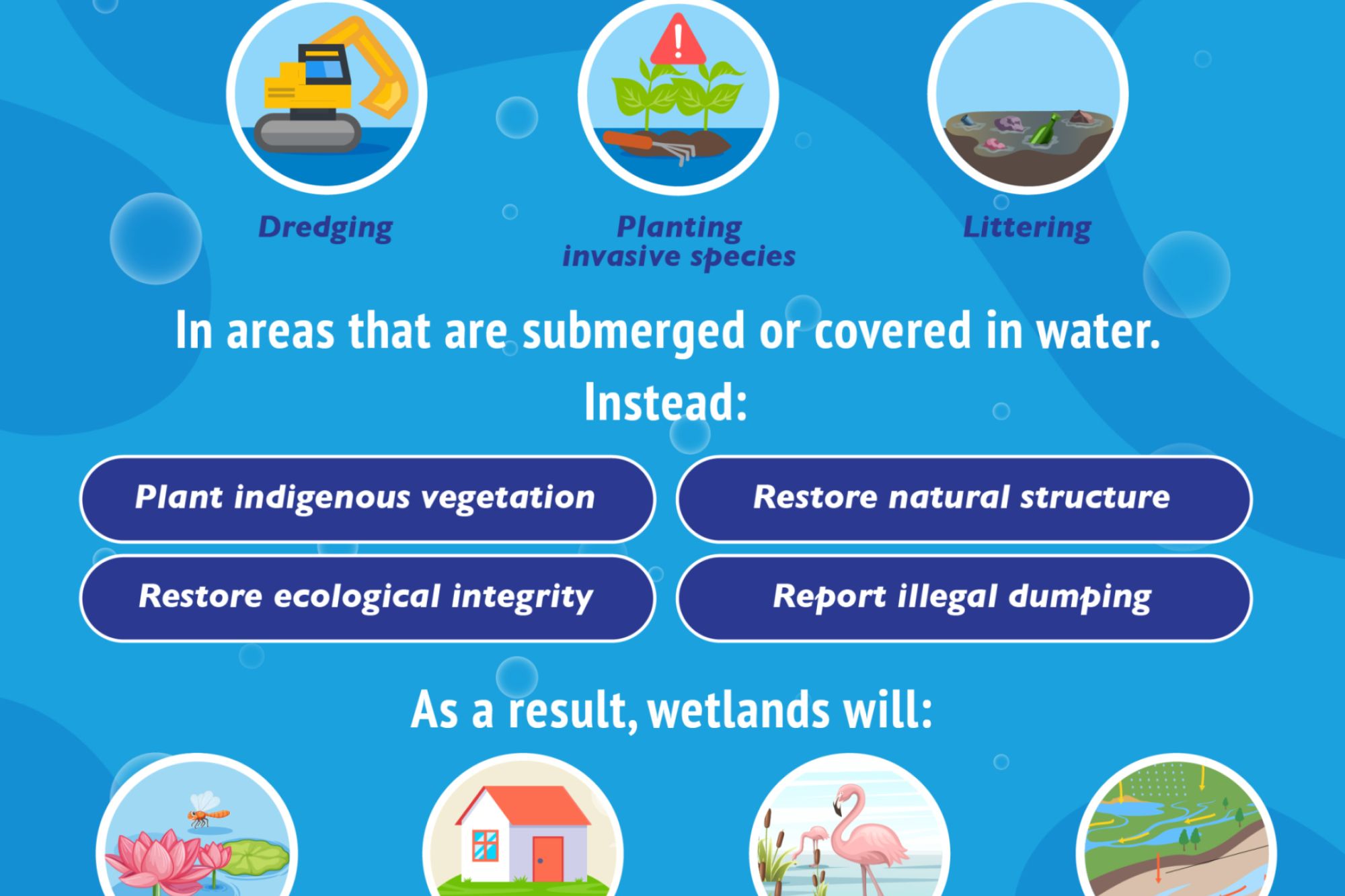Junior Hikers Discover the Value of Province’s Wetlands Ahead of World Wetlands Day
Celebrating World Wetlands Day on 2 February, CapeNature and Western Cape Government Department of Environmental Affairs and Development Planning (DEA&DP) took 40 learners from the Hikers Network Juniors on an interactive, guided hike through the Helderberg Nature Reserve teaching them about the importance of wetlands and its conservation.
World Wetlands Day is celebrated annually on the 2nd of February and marks the signing of the Ramsar Convention on Wetlands, an intergovernmental treaty with the mission to conserve wetlands. The theme for 2023 is “Wetlands Restoration” and highlights the urgent need to prioritise wetland restoration. In 2022, the Ramsar Convention declared the Berg River Estuary along the West Coast a Ramsar Site.
Mr Anton Bredell, Minister of Local Government, Environmental Affairs and Development Planning said, “Our Department has prioritised wetlands as critical ecological infrastructure in the province, which provide essential services to communities and our economy. We work closely with CapeNature and other partners, like Biosphere Reserves, to prioritise the protection and rehabilitation of our wetlands. Part of this includes educational awareness around the value of wetlands and encouraging our youth to think about how wetlands make our planet more liveable.”
“By visiting a local wetland, such as the one in the Helderberg Nature Reserve, we educate students on how wetlands provide a habitat for numerous fauna and flora species, are highly valuable biological assets, and help to mitigate the effects of climate change,” said Bredell.
Kids listening attentively as a scientist demonstrating the functionality of a wetland.
Young environmental enthusiasts enjoying the educational trip.
In addition to hiking through the reserve, learners (aged between 8-13 years old) took part in activities that highlight the value of wetlands such as the building of wetland models, a mini-SASS (South African Scoring System for water quality) activity, and crafting a water cycle bracelet.
CapeNature has done much work to protect and restore wetlands. According to Dr. Razeena Omar, CEO of CapeNature, “We are very proud of the entity’s efforts in restoring two wetlands: the Verlorenvlei project and the award-winning Goukou-Duiwenhoks Wetland Project.”. CapeNature and Working for Wetlands collaborated to restore Verlorenvlei wetland by removing obstructions to water flow, reducing sediment, and clearing alien vegetation. In addition, a bird hide was constructed to increase tourism and provide public access to the area. The Goukou-Duiwenhoks wetlands project has been going for ten years and aims to save this threatened ecosystem by improving water storage and quality, and protecting the habitat and its species. This project has increased the community's employment opportunities, increased tourism, and will continue to have a positive impact on the environment.
Ramsar has listed seven best practices for wetland restoration:
• Consider the multitude of services the natural wetland provides and aim to recapture a wide range of those benefits, not just one or two.
• Aim to recreate a wetland ecosystem that can maintain itself.
• Integrate local communities and industries during planning and implementation.
• Identify the causes of degradation and limit or eliminate them.
• Clean up the degraded area.
• Restore native vegetation and wildlife and remove invasive species.
• Restrict site access, creating specific places for people and animals.
CapeNature also provides workshops for teachers on how to deliver curriculum-aligned environmental lessons and activities. Assistance and resources can be accessed by emailing learning and awareness at mailto:learning@capenature.co.za.
Take part in the global celebration by following the hashtags #WorldWetlandsDay #ForWetlands #GenerationRestoration

Related News
How can I assist you today?
How can I assist you today?



